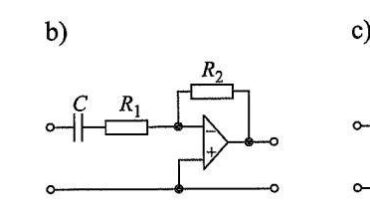India’s Goods and Services Tax (GST) regime has been instrumental in streamlining indirect taxation, fostering a unified market, and promoting economic growth. However, new challenges have emerged as the system matures, necessitating continuous improvements. The latest GST update, effective October 2024, underscores the government\u2019s commitment to bolstering compliance and reducing fraud. Central to this update is the mandatory bank account validation for amendments in GST registration details.
This notable regulation adjustment aims to improve the GST framework’s integrity by guaranteeing that all bank accounts associated with GST registrations are valid and confirmed. This strategy attempts to reduce fraudulent practices, including bogus registrations and the exploitation of Input Tax Credit (ITC), by adding real-time checking procedures to the GST system. Furthermore, it provides the path for faster and more secure transactions, helping businesses across the spectrum, including small and medium enterprises (SMEs), large corporations, and exporters.
In this blog, we explore the nuances of this update, its implications for businesses, and how technology-driven solutions, like a good billing software, can ease the compliance burden while enhancing operational efficiency. Stay informed and prepared as we delve into the details of this transformative GST update.
Understanding the October 2024 Update
What Is Bank Account Validation?
Bank account validation involves verifying the authenticity of the bank account linked to a GST registration. This process ensures that the details businesses provide align with the official records maintained by financial institutions.
Key Highlights of the Update:
Mandatory Validation:
Businesses must now validate their bank account details whenever amendments are made to their GST registration.
Scope of Amendments:
The validation applies to changes such as updates to the bank account number, modifications to business details, or adding new bank accounts.
Real-Time Verification:
The GST portal integrates with banking systems to enable real-time verification of account details.
Impact on Refunds and ITC Claims:
Refunds and Input Tax Credit (ITC) claims may be linked to validated accounts, adding another layer of security to financial transactions.
Why Was This Update Introduced?
The GST Council has implemented this measure to address several challenges:
Preventing Fraud:
Fake registrations and fraudulent ITC claims have been a persistent issue. Mandatory validation helps ensure that only genuine accounts are linked to GST registrations.
Enhancing Transparency:
By linking verified accounts, authorities can create a transparent trail of transactions.
Streamlining Refund Processes:
Validated bank accounts reduce errors and mismatches, ensuring faster and more accurate refunds for businesses.
Improving Compliance:
The update encourages businesses to maintain accurate and up-to-date information in their GST records.
Steps to Validate Your Bank Account
Here’s how businesses can comply with the new requirement:
Log in to the GST Portal:
Access your GST account using your credentials.
Navigate to Registration Amendments:
Select the option to update bank account details under the registration module.
Enter Bank Details:
Provide the account number, IFSC code, and other necessary information.
Complete Verification:
The system will verify the details with the corresponding bank in real time. A confirmation message will be displayed upon successful validation.
Submit Amendment:
After validation, submit the amendment request for approval.
Implications for Businesses
For Small and Medium Enterprises (SMEs):
SMEs may need to allocate additional resources to ensure compliance with this update. However, the long-term benefits of improved trust and streamlined refunds outweigh the initial effort. To make the process smoother, explore how CaptainBiz’s tools can simplify GST filings and enhance your business’s financial management.
Learn more about CaptainBiz GST solutions.
For Exporters:
Validated accounts can expedite GST refund claims, which is especially crucial for exporters relying on timely cash flow. To ensure your accounts are in order and refunds are processed quickly, explore CaptainBiz’s comprehensive GST billing software solutions.
For Large Corporates:
Corporates handling multiple accounts across branches must ensure that all accounts are validated to avoid disruptions in operations.
Common Challenges and How to Address Them
Data Mismatches:
Ensure that the bank details provided on the GST portal match your bank’s records. Even minor discrepancies can delay validation.
Technical Glitches:
Use updated systems and browsers to avoid issues during the validation process.
Multiple Accounts:
If your business operates multiple accounts, systematically validate each to maintain compliance.
Staying compliant with evolving GST regulations can be daunting, especially for businesses juggling multiple tasks. This is where tools like CaptainBiz come into play.
Also Read: Accounting Best Practices for Startups and Small Businesses
Conclusion
The October 2024 GST update mandating bank account validation underscores the government’s commitment to fostering transparency and reducing fraud. While the new requirements may pose initial challenges, they promise significant benefits in the long run, including faster refunds and improved compliance. By leveraging tools like CaptainBiz, businesses can seamlessly adapt to these changes, ensuring compliance without disrupting daily operations.
FAQs
What happens if I don’t validate my bank account?
Failure to validate bank accounts may lead to delays in GST refunds and issues with ITC claims. It could also attract penalties for non-compliance.
Can I validate multiple bank accounts under one GST registration?
Yes, businesses can validate multiple accounts. Ensure all accounts are up-to-date and linked to the GST portal.
Is bank account validation a one-time process?
No, validation is required whenever there are amendments to bank account details, or new accounts are added.
How long does the validation process take?
With real-time integration, validation is usually completed within minutes, with no discrepancies.
Can I use third-party software for compliance?
Tools like CaptainBiz can simplify the process by integrating GST compliance features with bank account management.
Does the validation apply to all businesses?
Yes, the update applies to all businesses registered under GST, regardless of size or turnover.
What documents are required for validation?
You’ll need the account number, IFSC code, and proof of account ownership, such as a bank statement.
Will this update affect refund timelines?
Validated accounts are expected to streamline refund processes, reducing delays caused by mismatches or errors.




